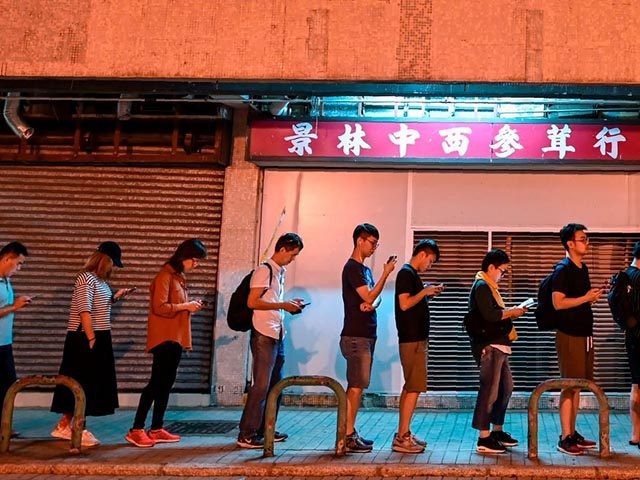Hong Kong chief executive Carrie Lam said on Monday that legislative elections, already postponed for a year by the coronavirus pandemic, could be delayed again while the Chinese Communist Party (CCP) “reforms” the island’s electoral system to ensure only Communist loyalists can hold public office in the future.
“I cannot tell you at this point whether we need to further defer the election. We have a mammoth task ahead of us,” Lam told reporters after returning from Beijing, where the National People’s Congress (NPC) is currently underway.
One of the changes Beijing reportedly plans to make involves restructuring the 1,200-member electoral commission that chooses the chief executive. The restructured commission will eliminate pro-democracy members, ensuring that only hardcore Communist Party loyalists (or “patriots,” as Party functionaries like to call them) will have any influence over Hong Kong’s executive branch.
According to Lam, the NPC will force Hong Kong to enact “more than 20 pieces of principle and subsidiary legislation,” with the same disregard for Hong Kong’s fading autonomy Beijing displayed when it bypassed the city’s legislature to impose an authoritarian “national security law” that effectively criminalized dissent.
“Because of the urgency of completing the whole exercise, which involves local legislation, we will not be able to do the so-called extensive public consultations. But we have been listening to the people about the concerns of the electoral system about the malfunctioning of the Legislative Council in the past,” Lam said, alluding to the way pro-democracy legislators sometimes used their votes to obstruct the CCP’s agenda.
Lam said elections for membership in the executive committee might be delayed along with the legislative elections, potentially extending her own term in office, while Chinese legislators said the executive committee could be given more power to decide which candidates are allowed to run for executive offices.
The committee will also reportedly be expanded in size to 1,500 members, while the legislature will be cut from 70 seats to 60, with more of its members appointed by Beijing instead of elected by Hong Kong voters. The revamped election committee could become a permanent agency with investigative powers – not only vetting candidates to ensure they are “patriots,” but ensuring they remain “patriotic” once they take office.
Lam bizarrely insisted these totalitarian measures would make Hong Kong democracy healthier and strengthen its “one country, two systems” model of limited autonomy. She insisted Beijing’s controls would be “constitutional and lawful” measures to “plug the loopholes” in Hong Kong’s system. She said her administration would launch an “intensive” program of public education to explain the benefits of Beijing’s reforms to Hong Kong citizens.
Lam said that now “everything is being restored to its proper constitutional order” – i.e. the pro-democracy movement of 2019 has been ruthlessly suppressed – “the chance and time will come for Hong Kong’s political system to continue to move forward in a gradual orderly manner with a view to achieving the ultimate objective of universal suffrage in the selection of chief executive.”
This sounds like a cruel perversion of Hong Kong’s long-standing hope that its chief executives might someday be elected by the people of the city, rather than being chosen by the Beijing-controlled executive committee. Universal suffrage was one of the famed “Five Demands” made by the protest movement. Lam was suggesting they might finally get it, but the only candidates Hong Kongers will be permitted to vote for will be CCP apparatchiks who have been certified as “patriots” loyal to Beijing.
“The electoral reform is not targeting pan-democratic groups but only those who do not love Hong Kong or love the country, are involved in subversive activities and who challenge the authority of the government. The electoral system will remain representative,” Lam declared on Monday.

COMMENTS
Please let us know if you're having issues with commenting.